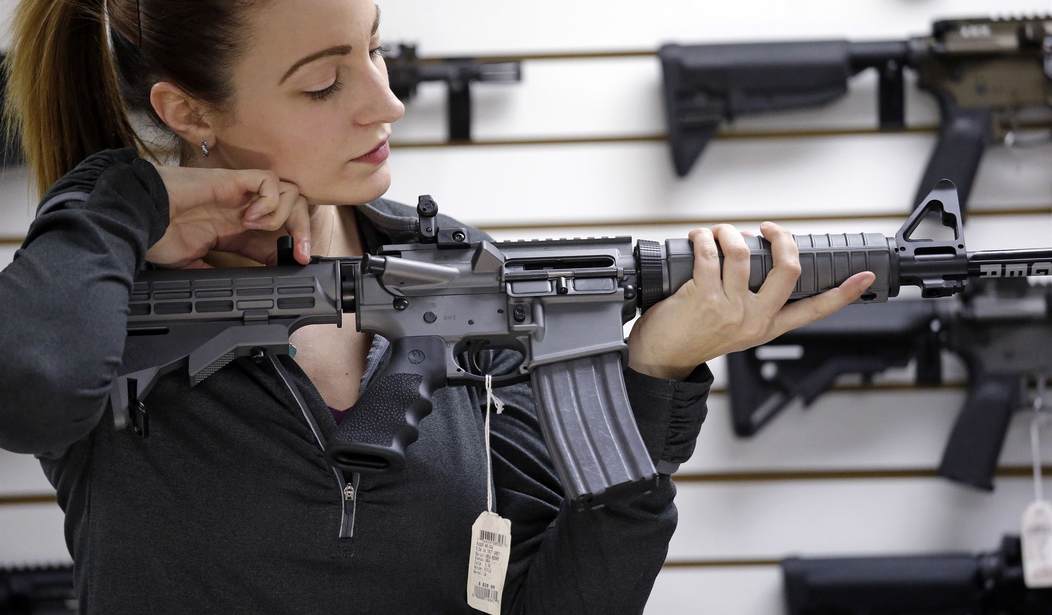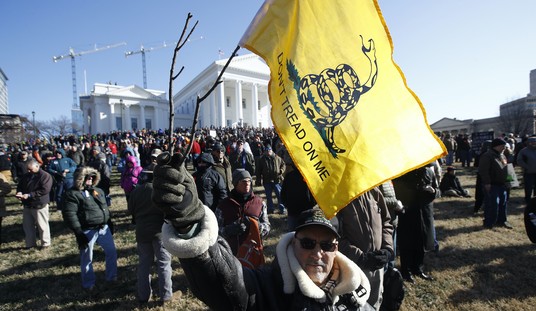Colorado’s Democratic majority has already sent several gun control bills to Gov. Jared Polis for his signature, but a bid to ban the sale and manufacture of so-called assault weapons failed early Thursday morning as the House Judiciary Committee narrowly rejected Rep. Elisabeth Epps gun ban bill by a 6-7 vote.
The defeat of the gun ban came after nearly 14 hours of testimony and attempts to make major modifications to the bill by Epps, who offered a pair of last-minute amendments stripping the “assault weapons” language and confining the legislation to a ban on bump stocks or “rapid-fire trigger activators”. Despite those changes three Democrats joined Republicans on the Judiciary Committee to reject the amendments as well as the underlying legislation.
Both failed on 6-7 votes, with three Democrats — Reps. Lindsey Daugherty, Said Sharbini and Marc Snyder — joining the four Republicans on the committee in rejecting the changes.
…
“I’m slightly in shock right now,” Epps said just before the final vote on the bill was taken and after her amendments failed.
The Democrats who voted against advancing the bill were Sharbini, Snyder and Rep. Bob Marshall.
Snyder, who has voted in favor of other gun control measures this session, said when he was campaigning he told voters he wouldn’t take guns away from law-abiding citizens. “The bill, I believe, does that,” he said.
Hundreds of Colorado residents signed up to testify in support and opposition to the bill, including Second Amendment scholar and attorney Dave Kopel, who argued against the bill’s supposed “findings” that modern sporting rifles are uniquely dangerous and disproportionately used in mass shootings. As Kopel pointed out in his testimony, handguns are by far the most common type of firearm used in mass shootings, not rifles. Kopel also noted that California, which has had an “assault weapons” ban in place in some form or fashion since 1989, currently experiences an average of more than one mass shooting per week. We all want to see fewer of these incidents, but trying to ban our way to safety isn’t gonna cut it.
Sadly, that’s not stopping Democrats in Washington State from barreling down that dead end road. On Thursday the state legislature gave its final approval for a semi-auto ban; one that will take effect immediately after Gov. Jay Inslee puts pen to paper.
The Washington law would cover more than 50 gun models, including AR-15s, AK-47s and similar style rifles, which fire one bullet per trigger pull and automatically reload for a subsequent shot. The bill bans their future sale, distribution, manufacture and importation, although some exemptions are included for sales to law enforcement agencies and the military in Washington.
… During debate on the Washington state bill, Democrats spoke of frequent mass shootings that have killed people in churches, nightclubs, grocery stores and schools. Sen. Liz Lovelett of Anacortes said that kids’ concerns about school shootings need to be addressed.
“They are marching in the streets. They are asking for us to take action,” Lovelett said. “We have to be able to give our kids reasons to feel hopeful.”
If lawmakers wanted to do that they’d be taking steps to increase the number of police in the state. Since 2016 Washington has seen a steady stream of gun control laws put in place, but violent crime has only gotten worse, thanks in part to an erosion in the number of law enforcement officers.
The number of commissioned law enforcement officers decreased 4.4%. The per capita rate of law enforcement officers fell to 1.38 per 1,000 statewide.
“When the staffing is down, the numbers are up,” said [Washington Association of Sheriffs and Police Chiefs executive director] Steven]Strachan.
Strachan said it is the lowest per capita rate of officers the state has seen since WASPC began tracking this data in 1980, and it’s the lowest in the nation. The national average per capita rate for officers is 2.33 officers per 1,000, according to the FBI.
“Right now, a lot of agencies are treading water. Not every single one. Not every single agency is in a staffing crisis; many are,” said Strachan.
“These things are problems with solutions, and that is to support good policing and to recognize that public safety is important.”
Not to the Democratic majority in Olympia, apparently, who would rather “do something” than do something that works, even if it results in both more “assault weapons” being sold in the short-term and a lawsuit challenging the constitutionality of the ban after it takes effect. Gun sales have already been soaring across the state, but I suspect that today will be absolutely bonkers for gun store owners as customers race to purchase a rifle ahead of Inslee’s enactment of the ban.
Attorneys for Second Amendment organizations, meanwhile, will be busy getting their initial complaints in order. Just as we’ve seen in Illinois and New York, I expect multiple legal challenges will soon be underway to Washington’s pending gun ban, and as we discussed with Second Amendment attorney Chuck Michel on Wednesday’s Bearing Arms Cam & Co, the Supreme Court will likely have the opportunity to weigh in on a similar ban when the Fourth Circuit Court of Appeals delivers its opinion in Bianchi v. Jones, which is now pending before a three-judge panel after oral arguments were held last December. Inslee may get to sign his gun ban into law, but that doesn’t mean he’s going to get to keep it in place for long.








Join the conversation as a VIP Member